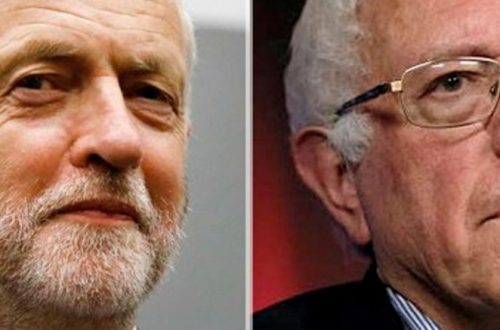A high propensity for conspiracy myths often goes hand in hand with anti-Semitic attitudes. There is also a connection between high trust in social media and anti-Semitism. This is shown by the Anti-Semitism Study 2020 presented by President of Austrian Parliament Wolfgang Sobotka together with Eva Zeglovits (IFES) and Thomas Stern (Braintrust), which IFES prepared on behalf of the Austrian Parliament. Wolfgang Sobotka is thus continuing the research work of the Anti-Semitism Study 2018.
According to IFES study director Eva Zeglovits, the results of the 2018 and 2020 surveys are only comparable to a limited extent, as the interviews for the study took place immediately after the Islamist terrorist attack on 2 November 2020. “The timing of the field research immediately after this traumatising event is likely to have increased the tendency for socially desirable response behaviour,” Zeglovits points out. Only the Anti-Semitism Study 2022 will be able to prove whether anti-Semitic attitudes have actually been reduced to a relevant extent in the long term.
“Our goal is to observe anti-Semitism in Austria in a sustainable scientific manner and also to put it in context with current developments,” said Sobotka. Media influences on anti-Semitic attitudes as well as anti-Semitic conspiracy myths surrounding the Corona pandemic were therefore included as additional topics of the 2020 study in the research project. Antisemitism surrounding the BDS campaign was also one of the themes of the research.
High anti-Semitism among adherents of conspiracy myths
The study shows that a high propensity for conspiracy myths goes hand in hand with strongly held anti-Semitic attitudes. For example, the statement “A powerful and influential elite (e.g. Soros, Rothschild, Zuckerberg…) is using the Corona pandemic to further expand their wealth and political influence” is agreed to by 59% of respondents with a high propensity for conspiracy myths. Project coordinator Thomas Stern points out that anti-Semitism is based on centuries-old traditions of conspiracy myths: “Times of crisis are also boom times for conspiracy myths today, which also have a clear connection to anti-Semitism today,” Stern explains.
Connection between trust in the media and anti-Semitism
The connection between trust in (social) media and anti-Semitism, which was investigated for the first time in the Anti-Semitism Study 2020, shows a clear picture: In Austria, only a minority trusts news from social media. Those who do, however, show above-average anti-Semitic attitudes. Those who trust traditional media, on the other hand, more often rate anti-Semitic statements as inaccurate, the study shows. “Our figures show a clear connection between trust in social media, conspiracy myths and anti-Semitism. The opposite pole is formed by traditional media, which continue to enjoy a high level of trust and whose readers agree significantly less with anti-Semitic attitudes,” says study director Eva Zeglovits.
Educational work strengthens culture of remembrance
An important result of the anti-Semitism study is the strong commitment of the population to the culture of remembrance. The majority (57%) say that the extent of remembrance culture is just right. 20% are in favour of less, 16% of more remembrance. The youngest respondents (16 to 25 years), on the other hand, call for more remembrance work significantly more often (30%). “This underlines the great role of education and civil society initiatives for remembrance culture and the fight against anti-Semitism. Education works against anti-Semitic resentment and promotes commitment to overcoming it,” said Parliament President Wolfgang Sobotka.
Anti-Semitism in comparison
Based on a special analysis of the 2018 anti-Semitism survey, two dimensions of anti-Semitism were differentiated: affective, emotionally driven anti-Semitism and pseudo-rational anti-Semitism arguing with supposed “evidence”. Non-antisemitic attitudes were summarised in the dimension “non-antisemitism”. According to the study, statements that can be classified as affective anti-Semitism are currently held by 8% of respondents (2018: 12%). Significantly higher, at an average of 23%, is the proportion of people who find the statements of pseudo-rational anti-Semitism to be very or somewhat true (2018: 34%). The majority (56%), however, can be assigned to non-anti-Semitism (2018: 49%).
Consistent policy as an influencing factor
The President of Austrian Parliament, Wolfgang Sobotka, states: “Even if the decreases are effects of socially desired response behaviour, this is relevant and important for us. Because this shows a growing awareness of the problem of anti-Semitism, which in turn is the basis for an actual change in attitude.” Sobotka also points out that the consistent policy position against anti-Semitism, the pronounced Israel policy of the federal government and the cooperation with Israel in fighting the Corona pandemic have clearly had positive effects. This also includes initiatives of the Austrian Parliament such as the Simon Wiesenthal Prize, seminars of the Democracy Workshop and the achievements of the National Fund. “Young people, quality media and responsible politics are in any case important bearers of hope and partners in the fight against anti-Semitism,” sums up the President of Parliament.
About the Anti-Semitism Study 2020
The study was conducted by IFES in cooperation with DEMOX. The interviews took place in November-December 2020. The Austria-wide representative survey (n=2,000) is based on 800 telephone CATI interviews and 1,200 CAWI or online interviews nationwide. In addition, n=300 CATI interviews with persons with a migration background in Turkey and n=300 CATI interviews with persons with a migration background in an Arabic-speaking country were added. The results of these top-up groups will be presented separately in autumn 2021 after a dialogue process with representatives of these groups.
Guest post by Karl Pfeifer




